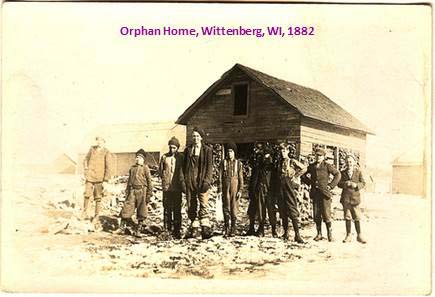4 Ways the Orphan Appears in Individual Psychotherapy

The experience of the orphan is surprisingly important for individual case studies. Why is this image so powerful for us?

For those who come from stable family backgrounds, that might seem like an absurd thing to claim. But let me try and show you what I mean.
Exile
To live as an orphan, is to feel completely alone in the world. To feel that the world is not dependable or safe, and in particular, that there are few or no bonds with other people that can be depended on at any deep level.
[hs_form id=”17″]
The true orphan is one prevented from forming and relying on the bonds to parents and family that are so crucial in early life.
To be an orphan is to experience radical aloneness. It is to experience radical vulnerability.
There are many people who genuinely don’t have parents. Some actually don’t have living parents. Others, many more, live the wound of profound abandonment, due to parental apathy, abuse or fundamental rejection.
And, all of us, in the process of individuation, will at times partake of orphan reality — where we are left feeling profoundly isolated and abandoned, with no resources to rely upon but our very own.
Eric Clapton sings of many kinds of orphan state in the song Motherless Child:
Forever Taking Leave (Always on the Verge of Departing).
As John Bowlby showed, one of the characteristics of those who, like orphans, have had weak or broken attachment to others in early life is that, very often, they can be ready to cut their connections to other people, places or situations at the drop of a hat.
When I reflect on this, I’m reminded of some lines from an old pop song by the Eagles:
“I’ve got this peaceful, easy feeling / I know you won’t let me down / ‘Cause I’m already standing on the ground”
The orphan part of our psyche is always ready to pull away, because it never truly feels like it is at home, or that it really belongs.

Yearning for Home
Yet orphans continually yearn for home. Symbolically, home represents a place of true belonging, to which a person is fully, fundamentally and irrevocably connected.
This yearning is deeply embedded in human psychology and biology, through 200+ million years of mammalian evolution. It expresses itself in a vast variety of ways in human art, literature, music, religious symbolism and philosophy — and also, I note with interest, in baseball!

To Really Come Home
All human individuals can can experience this orphan dimension to human existence — can, at times, feel incredibly alone and without a true home. One of the key benefits of in depth individual case studies is to enable the individual to have the sense of being at home in her- or himself, in one’s true nature. Just what that means for any given individual is apparent as he or she takes his or her own journey into the experience of the orphan, and into self-understanding, and self acceptance.

Sandy Wickersham-McWhorter
SO GLAD I FOUND YOUR BLOG! I’m working on an essay to enter in the Carl Jung Society in St. Louis, MO (I think that’s what it’s called, don’t have the info in front of me) annual contest, and had been struggling to find a Jungian explanation for one of 3 effects on my adult life from two childhood incidents. This blog did the trick! A feeling of being alien and abandoned on Earth has followed me for years after our parents abandoned my brothers and me in 1959, its because of the very thing you write about here! My brothers spent 5 years in an orphan’s home and I was with a grandmother not knowing where my parents or brothers were for five years. I don’t know the scientific name for this orphan thing we suffer but, THANK YOU SO MUCH!
Brian C
Thank you for your comment, Sandy! I’m glad if the blog helped. I think that, from a scientific point of view, there might also be value in looking at the subject of “attachment injury”. Wishing you all the very best with the essay contest, Sandy! Regards, ~Brian
Susan Smith
Really appreciated blog post to balance a Mother’s Day of fluffy Facebook posts. Also, this concise explanation of the orphan archetype is so helpful in thinking about anyone who has a less than secure primary relationship. Thank you.
Brian C
Glad you found this useful, Susan. I think you’re right: the orphan archetype gets constellated, to some degree, whenever there is insecure attachment. Thanks for your comment!
Arlen Stahlberg
I am interested in reading about the quintessential orphan psychology in adulthood – although I had parents who did not die or abandon me as a child. In Jungian work we discovered this orphan psychology that is mine
Thank you